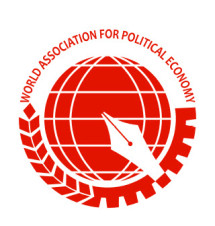Summary:
World Review of Political Economy Vol. 9, No. 4, Journal Article Is the Financialization Hypothesis a Theoretical Blind Alley? Stavros Mavroudeas and Demophanes Papadatos World Review of Political Economy Vol. 9, No. 4 (Winter 2018), pp. 451-476 Published by: Pluto Journals DOI: 10.13169/worlrevipoliecon.9.4.0451 https://www.jstor.org/stable/10.13169/worlrevipoliecon.9.4.0451 Page Count: 26 https://www.jstor.org/stable/10.13169/worlrevipoliecon.9.4.0451?seq=1#page_scan_tab_contents Abstract The Financialization Hypothesis is a popular argument in contemporary heterodox and also mainstream economics. It maintains that capitalism has undergone a radical transformation over at least the past three decades. The financial system, through a series of innovative
Topics:
Stavros Mavroudeas considers the following as important: critique, fictitious capital, financialisation, interest bearing capital, Marxism, Mavroudeas, money as capital, Papadatos, repos, shadow banking, shareholder value, Άρθρα σε επιστημονικά περιοδικά - Articles in academic journals
This could be interesting, too:
World Review of Political Economy Vol. 9, No. 4, Journal Article Is the Financialization Hypothesis a Theoretical Blind Alley? Stavros Mavroudeas and Demophanes Papadatos World Review of Political Economy Vol. 9, No. 4 (Winter 2018), pp. 451-476 Published by: Pluto Journals DOI: 10.13169/worlrevipoliecon.9.4.0451 https://www.jstor.org/stable/10.13169/worlrevipoliecon.9.4.0451 Page Count: 26 https://www.jstor.org/stable/10.13169/worlrevipoliecon.9.4.0451?seq=1#page_scan_tab_contents Abstract The Financialization Hypothesis is a popular argument in contemporary heterodox and also mainstream economics. It maintains that capitalism has undergone a radical transformation over at least the past three decades. The financial system, through a series of innovative
Topics:
Stavros Mavroudeas considers the following as important: critique, fictitious capital, financialisation, interest bearing capital, Marxism, Mavroudeas, money as capital, Papadatos, repos, shadow banking, shareholder value, Άρθρα σε επιστημονικά περιοδικά - Articles in academic journals
This could be interesting, too:
Stavros Mavroudeas writes Once again on the shadow playing of Greek capitalism
Joel Eissenberg writes Pete Hegseth knows nothing about Marxism
Stavros Mavroudeas writes COVID-19 Pandemic and Vaccine Imperialism – Review of Radical Political Economics
Stavros Mavroudeas writes Once Again on the Alleged Differences between Marx and Engels – S.Mavroudeas 2023 WAPE Forum
World Review of Political Economy
Journal Article
Is the Financialization Hypothesis a Theoretical Blind Alley?
Stavros Mavroudeas and Demophanes Papadatos
World Review of Political Economy
Vol. 9, No. 4 (Winter 2018), pp. 451-476
Published by: Pluto Journals
DOI: 10.13169/worlrevipoliecon.9.4.0451
Page Count: 26
Abstract
The Financialization Hypothesis is a popular argument in contemporary heterodox and also mainstream economics. It maintains that capitalism has undergone a radical transformation over at least the past three decades. The financial system, through a series of innovative mechanisms, has conquered the commanding heights of capitalism and has changed the whole system according to its own prerogatives. Concomitantly, the global capitalist crisis of 2008 is considered to have been a financialization crisis. This article disputes the Financialization Hypothesis and argues that instead of casting light on the actual workings of modern capitalism, it misconstrues them and leads into an explanatory blind alley. The spectacular ballooning of the financial system during the recent decades of weak profitability and accumulation does not constitute a new epoch, let alone a new capitalism. Instead, it represents a familiar capitalist response to periods of weak profitability. This does not preclude the proliferation of new financial instruments, which lend specific new forms to a well-known capitalist process. The Marxist theory of crisis and fictitious capital offers an analytically and empirically superior understanding of this process.
Advertisements


